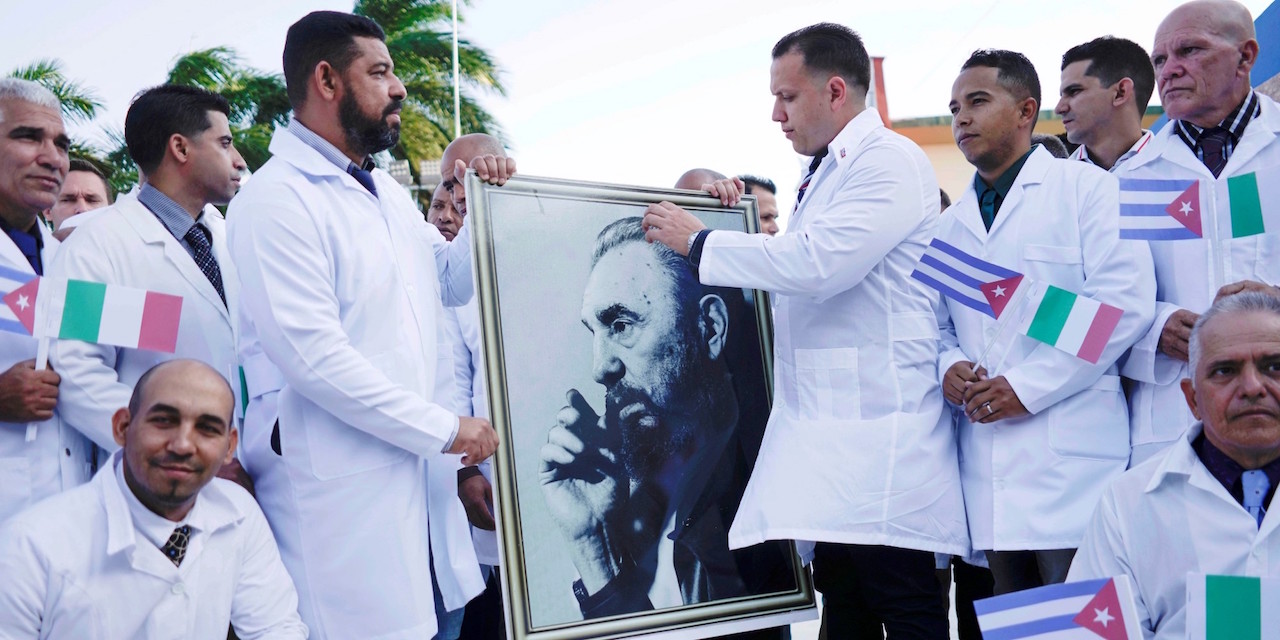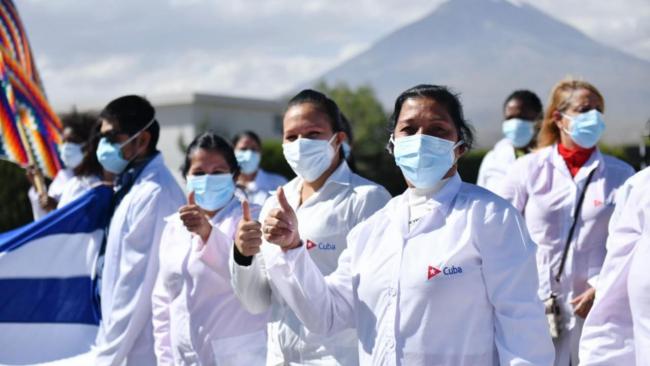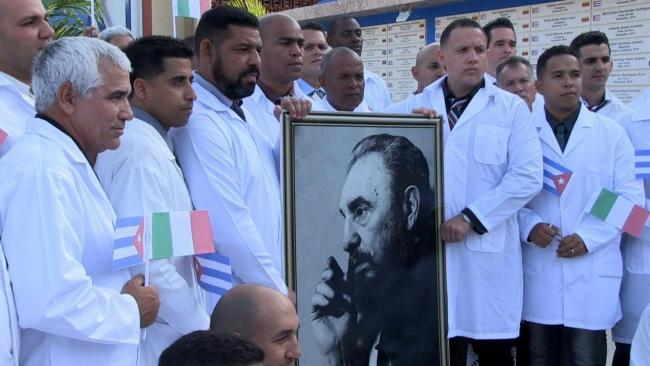A recent online conversation between the pro-regime singer and songwriter Israel Rojas and Professor Carlos Lazo, a resident of the United States, spotlighted the debate about the government's reprisals against Cuban doctors who leave missions abroad, and also about the justice deserved by all those Cubans who have been persecuted and punished for expressing their opinions against measures like these, today affecting thousands of families on the island.
Specifically, the eight-year entry ban for doctors who leave missions is "a terrible measure," said Rojas, because "it is a human right that people be able to live wherever they dream, wherever they believe they have better prospects." The punishment has an invaluable "human cost", he added. And his reasoning is not based on personal motivations, but rather his position as a lawyer.
Rojas, a regular defender of the government, knows that the such a harsh punishment on Cuban doctors is illegal, and these are the reasons why:
—The "eight-year law", as the prohibition is popularly known, actually does not exist. In other words, it is not registered as a valid legal provision, since neither the National Assembly, the Council of State, or the Council of Ministers have legislated it. A search in the Official Gazette of the Republic, the only document constitutionally empowered to document laws in force, justifies this assertion. After investigations, the Cuban government was asked to disclose the regulations on which this retaliation is based, a demand met with utter silence.
—The affected doctors face "exemplary punishment", being made an example of, which is political in nature, to avert the exodus by force, not via the law. No other modern legislation subjects its health professionals and technicians to such legal insecurity and defenselessness. The disastrous policy also affects other Cubans who abandon professional missions. Cuban lawyers clearly know that these prohibitions are arbitrary, but the regime permits no debate on it.
—The punishment is an administrative mandate without legal validity. There is no doubt that this provision has been drafted, but its secrecy voids its prohibitive legitimacy against Cubans. It is spread by word of mouth, and is the fundamental instrument of threat and coercion wielded by brigade and mission chiefs abroad, as well as State Security's "legal" agents in charge of surveillance and worker control.
—The crime of abandonment of functions, and its punishment by eight years in prison, is a myth. Some specialists, human rights activists and others consulted say that the entry ban for a period of up to eight years could be covered by Article 135 of the current Penal Code. This idea also stems from a misconception that has been implanted in the minds of professionals in the Health sector and others. In this regard, the entry ban is interpreted as the alternative punishment that the regime has decided on in view of the impossibility of imprisoning doctors, scientists, high-performance athletes and other relevant "deserters" for such a period of time. Legally, however, it is totally unsound.
In the first place, by constitutional mandate, the National Assembly, the Council of State and the Governing Council of the Supreme Court are required to issue clarifying opinions when there is uncertainty regarding the interpretation of given legal provisions. Thus, it would be necessary to clarify which "officials or employees in charge of carrying out a mission in a foreign country" are covered by the crime, as a legal provision.
A contextualized reading of the law leads one to understand that legislators never envisioned acting against Cuban civilians hired or mobilized to work abroad, but rather those who perform genuine public functions on missions that they ultimately abandon. This would apply, above all, to the official missions of the Ministry of Foreign Affairs, the Armed Forces, and other bodies linked to the highest power structure.
Second, the conclusion that doctors' act of leaving missions abroad really does not constitute a crime is based on the fact that the government allows them to re-enter earlier if they decide to rejoin the Health sector. In addition, those who enter after eight years are not criminally prosecuted, even when one has never punished for the supposed crime committed in accordance with the law.
No power has the authority to annul, suppress or change the meaning of compliance with a criminal law. In other words, where there is a crime, there is no room for impunity. Furthermore, in the hypothetical case that doctors were understood to be guilty of a crime under Article 135, by breaking the link with the Cuban State abroad, this action would not prevent them from entering, such that the prohibition is an arbitrary, subjective and illegal action.
Everything that is a right is not a duty, crime or offense
Moving freely or migrating is not a crime, an administrative offense or a reprehensible human action. Neither is deciding how one will work, with whom, and for whom. Deciding where to reside and raise a family are constitutional rights. And all that is a right is not a duty, crime or an offense
Obviously, all rights have limits, which are regulated by laws, but these limits are based simply on respect for the rights of other citizens, and should never be established based on political or ideological issues, or the state's desire to suppress freedoms.
The state has an obligation to guarantee rights, not restrict them; therefore, the prohibition of entry into the country is, clearly, an unconstitutional action. In addition, it lacks any moral and legal basis in international law.
On November 6, 2019 AL CUB 6/2019 was released, a joint report following a legal investigation carried out by the Special Rapporteur on Contemporary Forms of Slavery, including its causes and consequences; and the Special Rapporteur on Trafficking in Persons, Especially Women and Children, in response to a request lodged by the NGO Cuban Prisoners Defenders on behalf of Cuban doctors affected by government reprisals.
The rapporteurs expressed serious concerns about the legality of how Cuban Health professionals and technicians are treated abroad, as well as the severe limitations on the human, political and social rights of Cubans who decide to sever their employment relationships, and, especially, their right to freedom of movement, which includes the right to emigrate.
They concluded that Havana could be in violation of international legal instruments like the 1926 Slavery Convention, the Universal Declaration of Human Rights, the international Covenant on Civil and Political, Economic, Social and Cultural Rights, and Covenants 29 and 105 of the International Labor Organization on forced labor and its abolition.


